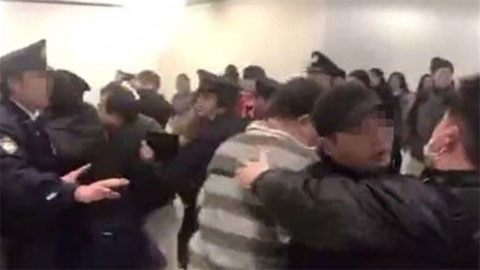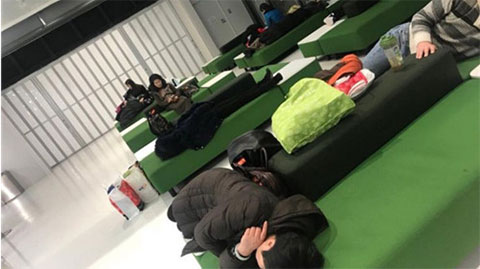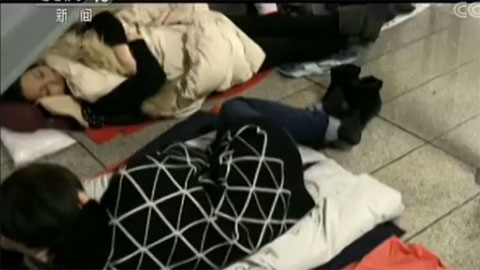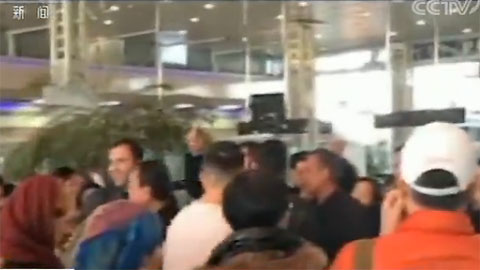Governor’s Voice: Insisting on Innovation, Leading Development and Building a Modern Economic System
Strong, rich and beautiful, writing a new chapter
Representative Wu Zhenglong (Governor of Jiangsu Province)
General Secretary of the Supreme Leader calls for the construction of a new Jiangsu with a strong economy, rich people, beautiful environment and a high degree of social civilization. We must implement Socialism with Chinese characteristics Thought of the Supreme Leader in the new era, lead high-quality development in the forefront of the country with new development concepts, and constantly push forward the construction of a new Jiangsu with strong wealth and high beauty.
Focus on building a modern economic system. Firmly adhere to the real economy, deepen supply-side structural reform, promote industrial transformation and upgrading, and move towards the middle and high end of the global value chain.
Focus on cultivating and developing new kinetic energy. Adhere to innovation as the first driving force for development, vigorously develop new industries, new formats and new models, and accelerate the change of quality, efficiency and power of economic development.
Efforts will be made to promote the coordinated development of urban and rural areas. Vigorously implement the strategy of rural revitalization, improve the quality of new urbanization, accelerate the construction of a more complete comprehensive transportation system, realize characteristic development, differential development, complementary advantages and coordinated development.
Focus on enhancing people’s sense of happiness and security. Adhere to the development orientation, work orientation and struggle orientation of enriching the people, focus on solving practical problems such as employment, income, social security and pension, and constantly meet the people’s growing needs for a better life.
Focus on the "three major battles." Adhere to both "mending the shortcomings" and "strengthening the bottom plate", effectively prevent and resolve major risks in the fields of finance, real estate and government debt, and resolutely fight the "four hard battles" of air, water and soil pollution prevention and environmental supervision and law enforcement, so that Jiangsu’s achievements in building a well-off society in an all-round way at a high level can be recognized by the people and stand the test of history.
Our reporter Yin Xiaoyu finishing
Deepen reform and improve business environment
Representative of Chen Wu (Chairman of Guangxi Zhuang Autonomous Region)
General Secretary of the Supreme Leader stressed the need to create a stable, fair, transparent and predictable business environment. According to the government work report, optimizing the business environment means liberating productivity and improving competitiveness.
China’s economy has entered a stage of high-quality development. In order to attract more resources to promote development, we must exert our strength in terms of service, efficiency and environment to create new advantages in the business environment.
Optimizing the business environment is actually a revolution of the government itself and a great change in the way of social governance. Since the 18th National Congress of the Communist Party of China, Guangxi has thoroughly implemented the Supreme Leader’s Socialism with Chinese characteristics Thought in the new era, guided its development with new development concepts, regarded government reform as the first move and the first gun, continuously deepened the "streamline administration, delegate power, strengthen regulation and improve services" reform, and fully implemented the "multi-certification, one photo and one yard" business registration model, which effectively stimulated market vitality and social creativity, and mass entrepreneurship and innovation flourished. Guangxi has become a hot spot for investment and development in the western region.
The business environment is not the best, only better. We will benchmark advanced and strive for first-class, take the construction of business environment as a breakthrough to promote Guangxi’s high-quality development, and make every effort to create an open and convenient investment and trade environment, a complete and high-quality production and operation environment, a talent gathering environment that encourages innovation, a high-quality and efficient government service environment, and a just and fair legal environment. Intensify the reform of "streamline administration, delegate power, strengthen regulation and improve services", further promote "Internet+government services", build a 24-hour "non-closing" online government, and strive to achieve "only enter one door" and "run at most once", so as to make the market players grow more fertile.
Our reporter Liu Huaxin Pang Geping finishing
Get rid of poverty and attack hard, and work hard to "embroider"
Representative of Yin Li (Governor of Sichuan Province)
On March 8, 2017, the General Secretary of the Supreme Leader participated in the deliberation of the Sichuan delegation, and vowed to make some efforts to "embroider" poverty alleviation. On the eve of the Spring Festival this year, the General Secretary visited the hinterland of Daliangshan Mountain in Sichuan and held a symposium in Chengdu to fight against poverty accurately. We must thoroughly implement the important strategic thinking of the Supreme Leader’s General Secretary on poverty alleviation and development, aim at deep poverty-stricken areas, firmly grasp the precise requirements, and resolutely fight the tough battle of getting rid of poverty.
First, we should work hard to improve the quality of poverty alleviation, adhere to the target standards, and focus on "two worries and three guarantees". In the next three years, 300,000 new jobs will be transferred, more than 430,000 people will be relocated to help the poor, and 200,000 new homes and Yi villages in Tibetan areas will be newly rebuilt, so as to do a good job in education in ethnic areas and block the intergenerational transmission of poverty.
Second, we should make great efforts to strengthen the input of factors, innovate the support policies such as finance, land and talents, and integrate resources to concentrate on fighting tough battles. In the next three years, we will invest 227.5 billion yuan in financial poverty alleviation funds, including 86.9 billion yuan at the provincial level.
Third, we should make great efforts to stimulate endogenous motivation, combine poverty alleviation with the implementation of rural revitalization strategy, strengthen the connection of planning, policies and mechanisms, adhere to the combination of poverty alleviation with supporting ambition and wisdom, and enhance the endogenous motivation and self-development ability of poor people.
Fourth, we should make great efforts to promote the implementation of poverty alleviation measures, adhere to the problem-oriented rectification of the work style in the field of poverty alleviation, work hard, tackle hard, keep an eye on it and grasp it to the end, and promote the "realization" of poverty alleviation policies.
Our reporter Zhang Wen Qi Zhiming finishing
A new starting point, stability and development
Representative Xue Kelaiti Sakel (Chairman of Xinjiang Uygur Autonomous Region)
In the past five years, under the strong leadership of the CPC Central Committee with the Supreme Leader as the core and the scientific guidance of Socialism with Chinese characteristics Thought in the new era of the Supreme Leader, Socialism with Chinese characteristics has entered a new era, and China’s reform and development has made historic achievements and undergone historic changes.
In the past five years, Xinjiang, like other parts of the country, has made great progress in various undertakings. We comprehensively and thoroughly implement the Party Central Committee’s strategy of governing Xinjiang and the spirit of the important speech of the Supreme Leader General Secretary, firmly focus on the overall goal of social stability and long-term stability in Xinjiang, and regard stability as a prerequisite for development; Sticking to development and not relaxing, conscientiously implementing the new development concept has promoted green development, improvement of people’s livelihood and social progress.
Socialism with Chinese characteristics has entered a new era, and Xinjiang has also stood at a new starting point. We will resolutely take maintaining stability as the primary political task and make every effort to ensure a stable environment for economic and social development; Adhere to the new development concept and resolutely fight the "three major battles" to prevent and resolve major risks, accurately get rid of poverty and prevent pollution; Resolutely implement the requirements of high-quality development, adhere to the level of primary production, focus on secondary production, and develop tertiary production, solve the problems of unreasonable industrial structure, insufficient motivation for sustained economic growth, and relatively backward infrastructure construction in our region, and form new kinetic energy and new growth points for economic development; Adhere to the people-centered development thought, make all the people’s livelihood construction more solid and make the people more satisfied; Insist on performing government functions according to law, comprehensively improve government efficiency, and strive to create a new situation of stable development in Xinjiang.
Our reporter Yang Mingfang Hou Yunchen finishing







